Cargando...
Recursos educativos
-
Nivel educativo
-
Competencias
-
Tipología
-
Idioma
-
Tipo de medio
-
Tipo de actividad
-
Destinatarios
-
Tipo de audiencia
-
Creador
Lo más buscado
- Letras B y V
- Cáncer
- Mapa de España
- Actividades en la nieve
- Experimentos de anatomía para educación inicial
- Juegos de tangram de figuras
- Ejercicios latín
- Aprender inglés en primer grado
- Proyectos escolares sencillos
- Colonización de América
- Conjugador de verbos en gallego
- Centrales eléctricas
- Alimentación saludable en P5
- álgebra
- Sea animals
-
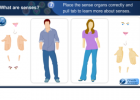
-
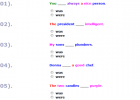
Verb "to be" - Past tense
Tiching explorer Organización
- 13984 visitas
The resource consists of a grammar lesson about the past simple of the verb "to be". We read an explanation and examples, and then complete several practice exercises.
-
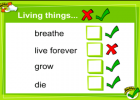
Living and non-living things
Smart Organización
- 2 lo usan
- 11496 visitas
SMART notebook lesson designed to help us learn about the characteristics of living and non-living things. We identify living and non-living components of an ecosystem, and the roles of organisms in…
-
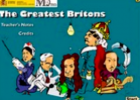
The greatest Britons
INTEF Organización
- 2 lo usan
- 2699 visitas
In this unit we learn about famous British people's lives. We practice vocabulary (jobs, years) and grammar (simple past tense, superlative sentences). We need to install the "Malted Web 2.0"…
-
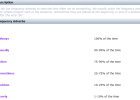
Frequency adverbs
Tiching explorer Organización
- 1 lo usan
- 10050 visitas
The resource consists of a grammar lesson about frequency adverbs (usually, never, always, sometimes, often, seldom, rarely). We read an explanation and examples, and then complete several practice exercises.
-
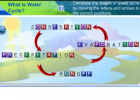
Water cycle
Smart Organización
- 9011 visitas
In this SMART notebook lesson we learn about the water cycle. We identify the different stages of the water cycle. We understand the significance of the water cycle in our lives. We
-
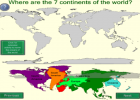
Continents of the world
Smart Organización
- 2 lo usan
- 8408 visitas
SMART notebook lesson designed to help us learn about the differing continents that make up the world. We position the continents on a map. We learn information about different continents, and the…
-
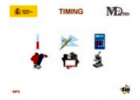
-
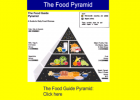
-
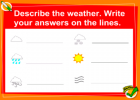
Te estamos redirigiendo a la ficha del libro...













